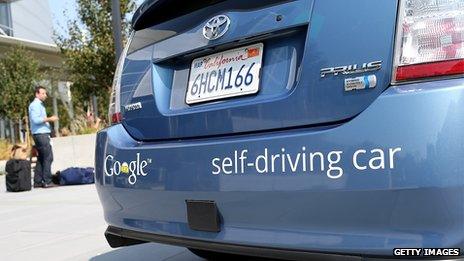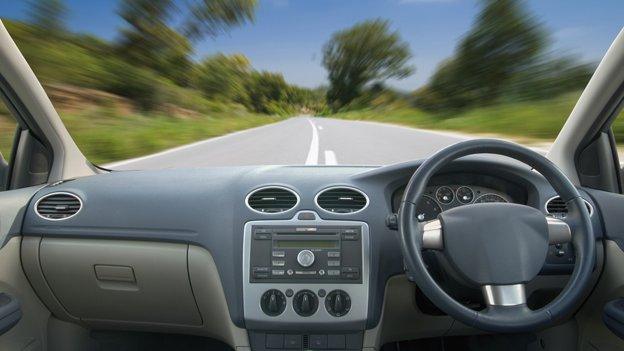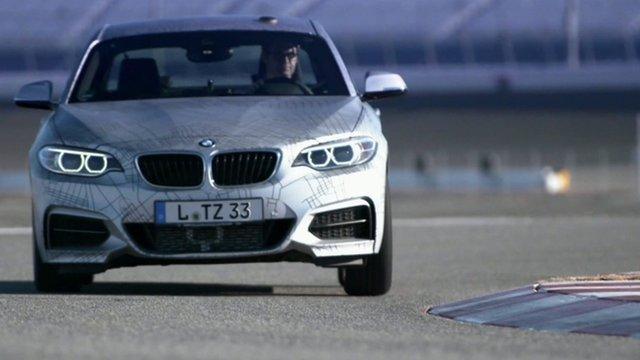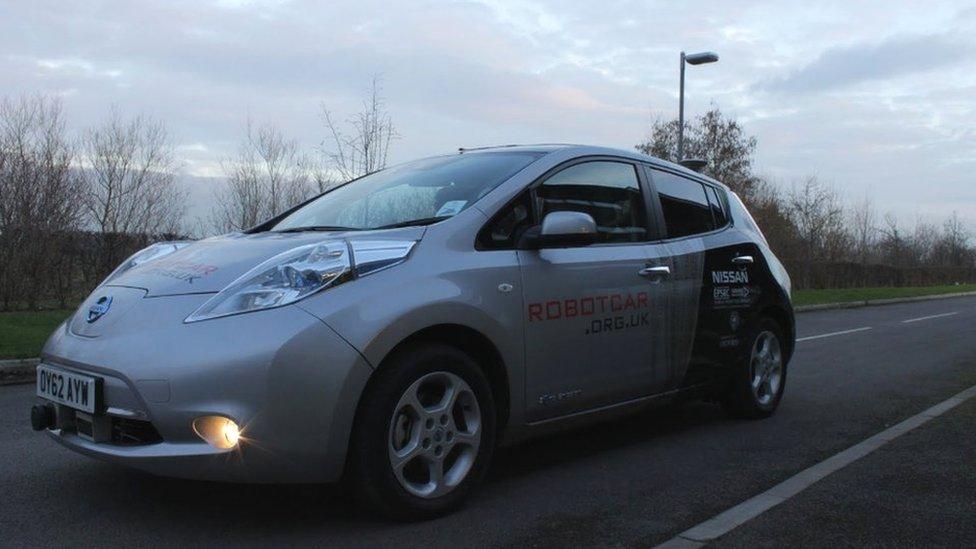FBI: Google's driverless cars could be lethal weapons
- Published

Driverless cars could be lethal weapons, according to the FBI
Driverless cars, such as those being developed by Google, could be lethal weapons, the FBI has reportedly warned.
An internal report, obtained by the Guardian, said the vehicles could be "game changing" for law enforcement.
The report noted criminals using automated cars would have both hands free and be able to take their eyes off the road during a car chase.
But it said that driverless vehicles could help the emergency services by automatically clearing a path for them.
In the report, which was marked restricted and obtained under a public records request, the FBI predicted the vehicles "will have a high impact on transforming what both law enforcement and its adversaries can operationally do with a car".
'Risk'
And, under the heading "Multitasking", the FBI said that "bad actors will be able to conduct tasks that require use of both hands or taking one's eyes off the road which would be impossible today". That raised the prospect that suspected criminals would be able to fire weapons at pursuing police cars.
The report, which was produced by the FBI's Directorate of Intelligence, predicted that "autonomy… will make mobility more efficient, but will also open up greater possibilities for dual-use applications and ways for a car to be more of a potential lethal weapon than it is today", the Guardian reported., external
The vehicles are currently being tested by Google and, according to the FBI, could be approved in the US within the next five to seven years. Other firms are also developing forms of automated driving. In June this year, it was announced, external that the British government was rewriting the highway code to allow for driverless cars.
BBC Newsnight's David Grossman: "All the technology necessary for this is in the car"
The predictions go against the message that firms who are developing the technology have tried to put out. They have argued that taking the human driver out of the car would remove a lot of the risks involved in driving.
The report noted that ambulances, police cars and other vehicles rushing to deal with emergencies would be helped by automated cars. "The risk that distraction or poor judgement leading to collision that stems from manual operation would be substantially reduced," it read.
It added that evasive manoeuvres drivers would take to allow emergency vehicles to pass would also be "optimised".
The FBI's report said that police cars would get a helping hand in keeping up with suspects. "Algorithms can control the distance that the patrol car is behind the target to avoid detection or intentionally have a patrol car make opposite turns at intersections, yet successfully meet up at later points with the target," it said.
- Published24 January 2014

- Published15 January 2014

- Published16 July 2013
